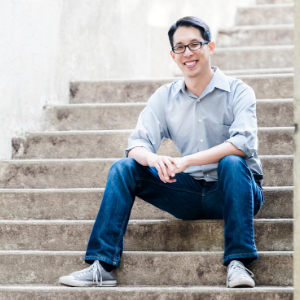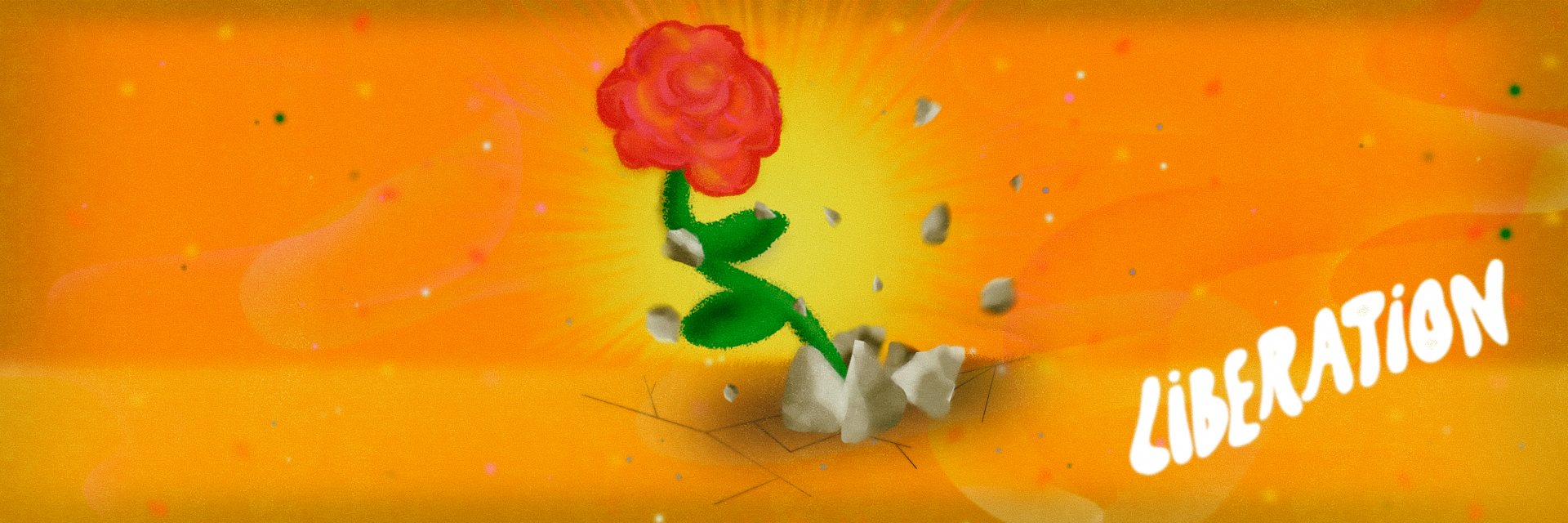
We Will Emerge: Liberation
We Will Emerge is a collaborative project bringing together 111 writers, activists, academics, poets, and public servants to imagine a blueprint for a post-COVID America. Our national and global dialogue about race and freedom amid the pandemic have raised the specter of liberation and what it means. These contributions, which all contend with the notion of liberation, imagine a world freed from the shackles of systemic racism and injustice—a world of abundance, freedom, and mutual support. Contributors for this section of We Will Emerge include Dave Eggers, Brittany Packnett Cunningham, and Ishmael Reed.
JUMP TO:
Carol Anderson | Dave Eggers | Kristen Green | Myriam Gurba | Mehdi Hasan | Valarie Kaur | Kim Kelly | Sally Kohn | Mayor Mitch Landrieu | Franklin Leonard | Sally Wen Mao | Brittany Packnett Cunningham | Ishmael Reed | Jason Stanley | Julio Ricardo Varela | Ayelet Waldman | Gene Luen Yang
Carol Anderson
We will emerge understanding how essential good government really is.
We will know that governing requires skill, expertise, intelligence, honesty, compassion, foresight, and wisdom. Anyone without those qualities and a commitment to all humanity can’t be anywhere near our lives. We will, therefore, know that white supremacy as an operating principle for government is unacceptable because it is destructive to everything and everyone it touches. It corrupts. It debases. It devalues. It destroys. It shreds the basic human rights that a strong, thriving, vibrant society needs. And all of this will lead us to be not only more aware about the importance and fragility of democracy, but humble enough to know that it cannot be entrusted to those who are unworthy. Through our votes, our free press, our engagement, our organizing, our refusal to be hoodwinked and bamboozled to accept less than our full rights. . .
We will emerge and find a better way.
Carol Anderson is the Charles Howard Candler Professor of African American Studies at Emory University and New York Times bestselling author of White Rage: The Unspoken Truth of Our Racial Divide and One Person, No Vote: How Voter Suppression is Destroying Our Democracy.

Dave Eggers
The U.S. is a profoundly punitive country, where we routinely throw humans away over the most mundane and forgivable crimes. This summer, the case of Fair Wayne Bryant, a 62-year-old Black man serving a life sentence, made its way to the Louisiana Supreme Court. His crime? Stealing a pair of hedge clippers. He’s been in prison for that crime since 1997. The court’s six white male justices upheld his sentence. The lone dissenter was the court’s one Black member.
That these six judges could be comfortable with a man spending his life incarcerated for petty theft is soul-rattling. But as a nation, we have a deeply disturbing obsession with putting people in cages. Shoplifters go to prison. People who write bad checks go to prison. Single mothers are separated, often permanently, from their children for minor drug offenses. This obsession affects people of color with towering disparity.
As a purportedly civilized people, we treat the concept of prison with shameful immaturity and sadistic glee. We laugh about prison rape. Trump’s supporters joke about locking up Hillary Clinton. We lust for the imprisonment of an actress who paid money to get her daughter into college. It’s all part of a national sickness, and we must do better. Imprisonment should be a last resort for the most violent offenders, not the first thought that comes to mind—from DAs to judges to every last one of us—when someone steps off the righteous path.
Though we still incarcerate more men and women than any country in the world—more per capita, too—the pandemic has led to a reduction of about 100,000 prisoners nationally. COVID-19 played a role, but it’s more complex than you’d think. A study by The Marshall Project found an array of reasons why the numbers dropped—including parole officers sending fewer parolees back for minor violations, and the simple fact that court closures have slowed the machinery of mass incarceration.
But what if we emerged more rational, practical, and even forgiving in our approach to criminal justice? Extreme sentences for minor crimes make us a barbaric people. If we are a creative and enlightened nation, surely we can think of better ways for offenders to repay society. Restorative justice works. Community service works. Rehabilitation is only logical. Putting humans in cages should be something we do—and countenance as citizens—only with the greatest reluctance.
When we emerge, we should aspire to be a civilized and enlightened country. This starts with dismantling our structurally racist, wholly irrational, and utterly counterproductive approach to incarceration.
Dave Eggers is the author or editor of many books, including Surviving Justice: America’s Wrongfully Convicted and Exonerated.
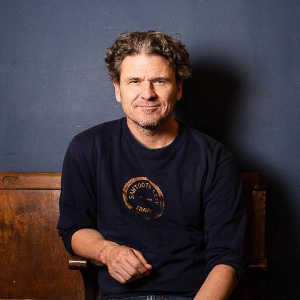
Kristen Green
We will emerge committed to dismantling systemic racism.
We will look ourselves in the eyes and acknowledge it’s our fault. Our failure to confront racist systems, to demand justice, means we are responsible for all of it. We will knock down our Confederate statues, these tellers of false histories. We will ask ourselves: How could we have let these symbols of oppression stand for so long? Then, we will buckle down to do the much harder work of ensuring freedom for Black Americans.
We will emerge and find a better way.
Kristen Green is the author of Something Must Be Done About Prince Edward County, a New York Times bestseller and an “editors’ choice.” Her new book, publishing in 2022 from Seal Press, is about Mary Lumpkin, an enslaved woman who helped transform a Richmond, Virginia slave jail known as “the Devil’s half acre” into a school for free Black men. Twitter: @kgreen, Instagram: @kristenngreen
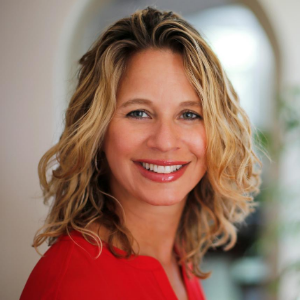

Myriam Gurba
We will emerge and be able to sleep through the night without fear.
We won’t have to indulge the nightly game of is-it-a-gunshot-or-is-it-fireworks?
We will emerge and find a better way.
Myriam Gurba is a queer Chicana writer and activist who lives in Long Beach, California. She is the author of Mean, a true-crime memoir.
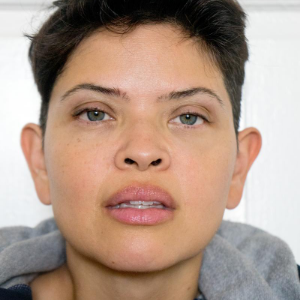
Mehdi Hasan
We will emerge and be less forgiving.
Less forgiving of billionaires who make money out of a public health crisis, while risking the lives of their workers. Less forgiving of a healthcare system which excludes and penalizes millions of people in the midst of a pandemic. Less forgiving of structural racism, which has led to Black and Brown people dying from COVID-19 at far higher rates than their white counterparts. Less forgiving of a government that always has money for wars and tax cuts, but not for PPE or ventilators. Less forgiving of bailouts for corporations instead of people. Less forgiving of the brutalities of capitalism.
We will emerge and find a better way.
Mehdi Hasan is a senior columnist at The Intercept and host of their “Deconstructed” podcast. He is also the host of UpFront and Head to Head on Al Jazeera English.
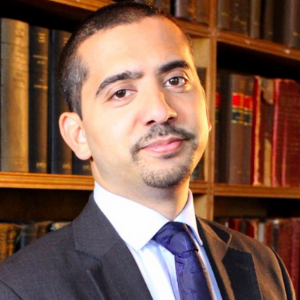
Valarie Kaur
We will emerge and see no stranger.
A revolution is underway. For too long, our nation has clung to a hierarchy of human values. It has left Black people gasping for breath, either from a deadly virus or an officer’s knee on their necks. What if this was our moment to transition America and reimagine a nation where no person is disposable? What if we practiced revolutionary love to transition our homes, classrooms, workplaces, policies, and institutions? Might we begin to birth the America we have long dreamed?
We will emerge and find a better way.
Valarie Kaur is a civil rights activist, lawyer, filmmaker, innovator, and founder of the Revolutionary Love Project. She has won national acclaim for her story-based advocacy, helping to win policy change on issues ranging from hate crimes to digital freedom, and her speeches have reached millions worldwide, inspiring a movement to reclaim love as a force for justice. Kaur’s new book, See No Stranger: A Memoir and Manifesto of Revolutionary Love, expands on her “blockbuster” TED Talk. Twitter and Instagram: @valariekaur, Facebook: @valarie.kaur.page

Photo by Amber Castro

Kim Kelly
We will emerge and be more militant in our struggle for collective liberation.
As this crisis continues to overwhelm our crumbling infrastructure, illuminate the cruel weaknesses of our predatory for-profit healthcare system net, and lay bare the vicious, unconscionable gulf between the haves and the have-nots that have characterized this country since its bloody genocidal beginnings, it becomes impossible to ignore the obvious: The system is not working. Capitalism is a death cult—and its fetid twins, fascism and white supremacy— continue to stalk the land unabated in their quest for flesh and blood. The vampiric adherents of this dreadful system have made no bones about the fact that they will happily sacrifice as many bodies as needed upon the altar of greed in order to protect their profits, and those elected to serve us care only for their own necks.
This is trench warfare, but only a few lucky, privileged souls even get to hunker down in the mud; the rest of us are left trembling naked on the battlefield, clinging to one another in desperation as we try to dodge the next volley.
Yet, even as darkness falls and the chill of uncertainty sets in, let us hold in our minds the maxim that it doesn’t have to be this way. There has been a groundswell of organizing around this current moment, of mutual aid projects and community defense groups, and calls for abolition—to free them all, to tear down the cages and let something brighter grow where once only sorrow thrived. Life doesn’t have to be like this, and together, we can ensure that it won’t be for the next generation.
Only we can save us.
We will emerge and find a better way.
Kim Kelly is a freelance journalist based in Philadelphia whose work focuses on politics, labor, and working-class resistance. She is the author of two forthcoming books on labor and capitalism.
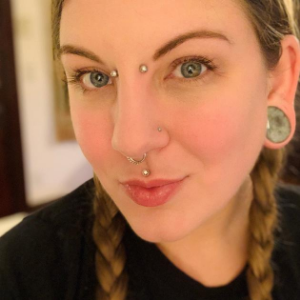
Sally Kohn
We will emerge and be more radical.
This moment of crisis has exposed the inequity and injustice that has long infected our nation and our globe. Those who have had the privilege to ignore the pandemics of poverty, racism, mass incarceration, environmental exploitation, and health insecurity before now hopefully understand maybe not that we’re all in it together, but we should be. None of us are safe until all of us are safe, just as none of us are free until all of us are free. And as we heal from this virus, we will hopefully begin to heal these historic and structural injustices.
We will emerge and find a better way.
Sally Kohn is an activist and writer. The author of The Opposite Of Hate: A Field Guide to Repairing Our Humanity, her three TED Talks have been viewed by millions, and she is a frequent television commentator.
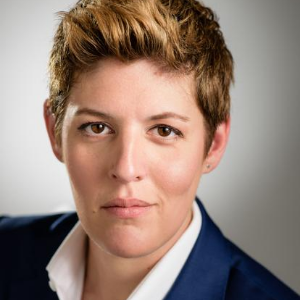
Mayor Mitch Landrieu
We will emerge and be more just and equitable.
This virus has laid bare once again the stark inequality in our beloved country. It has shown so clearly that so many of our fellow citizens who are undervalued, underpaid, underappreciated, and invisible have now stepped up and emerged as heroes on the front line, risking their lives to save ours. They have reminded us, once again, how much we depend on and need each other. We are called to do better and completely redesign our institutions and systems to finally live up to our promise that we are all equal.
E Pluribus Unum—out of many, one.
We will emerge and find a better way.
Mitch Landrieu, the 61st mayor of New Orleans, is a CNN political commentator and author of In the Shadow of Statues: A White Southerner Confronts History. He recently founded E Pluribus Unum, an organization dedicated to advancing racial and economic equity in the south.
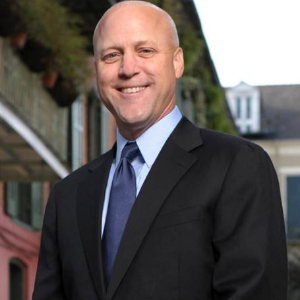

Franklin Leonard
We will emerge and be mindful of our common humanity.
We will remember that an attack on the weakest among us is an attack on us all. We will remember that none of us can survive while some of us are forced to contend with the unsurvivable. We will remember that national borders, and that which we believe separates us, are fiction in the face of what actually matters.
We will emerge and find a better way.
Franklin Leonard is a producer of feature films and television, an occasional writer in outlets like Vanity Fair and The Washington Post, and the founder of the Black List, a Hollywood organization that identifies, celebrates, and supports great screenwriting and the people who do it. Twitter: @franklinleonard
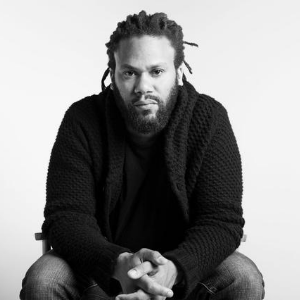
Sally Wen Mao
We will emerge when we eradicate the foundations and structures of white supremacy. We will emerge when power is divested and the systems that disenfranchise our most vulnerable communities give up their foundations predicated on racism and exclusion. It is not enough for these capitalists to respond to these vast injustices and violence against BIPOC with neoliberal methods of semantics, diversity, tokenism, and philanthropy—all of which produce further inequality. We will emerge when all the monuments to white supremacy, both literal and systemic, fall. We will emerge when we defund all systems that fundamentally abuse their power over the most vulnerable, including our police state that murders Black people and terrorizes communities of color. We will emerge when we hold the people in power accountable for their actions. We will emerge when the myths of freedom and democracy experience a much-overdue reckoning.
We will only emerge if all of us emerge.
Sally Wen Mao is a poet and writer, as well as the author of Oculus (Graywolf Press, 2019) and Mad Honey Symposium (Alice James Books, 2014). Twitter and Instagram: @sallywenmao
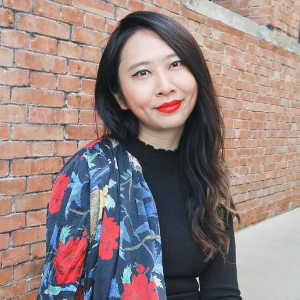
Brittany Packnett Cunningham
We will emerge and be MORE JUST.
Unprecedented times call for unprecedented imagination. The oppression of this pandemic has broadened possibilities to better support, house, feed, protect, employ, and care for one another, neighbor to neighbor, and government to constituent. Much that we were told was impossible—from a living wage to universal healthcare to creative work-life alignment—are possible, because we’re doing it now. We can and must choose to live, love, and govern more justly when the pandemic ends. We can and must choose abundance instead of scarcity, solidarity instead of charity, power shared instead of power hoarded. If we build the habits now, we will be more just in the end.
We will emerge and find a better way.
Brittany Packnett Cunningham is a leader at the intersection of culture and justice. She is an educator, writer, activist, podcast host, and an MSNBC contributor.


Ishmael Reed
We will emerge when the country finds a remedy for its year-round virus: white supremacy. Though the media—in order not to offend those who buy their products—babysit the millions of whites who voted for Trump, serious studies show that the majority selected him to express their anger at the rise of diversity: the same reason that they elected Ronald Reagan. Now, all of us are in jeopardy because millions of whites chose white supremacy over survival.
Ishmael Reed is the author of novels, plays, poetry, and nonfiction. He has received prizes in every category. His novel, Mumbo Jumbo, has been cited by Harold Bloom as one of 500 great books of the Western Canon. He has received the John D. MacArthur Genius Award and is one of a handful of authors to be nominated for two National Book Awards within the same year. He is also a songwriter whose songs have been recorded by Gregory Porter, Cassandra Wilson, Macy Gray, Taj Mahal, and Bobby Womack. His poem, “Just Rollin’ Along,” about the 1934 encounter between Bonnie and Clyde and Oakland Blues artists L.C. Good Rockin’ Robinson, was chosen for The Best American Poetry 2019. It is also included in Why the Black Hole Sings the Blues: Poems 2007-2019, forthcoming from Dalkey Archive Press in Fall 2020. His audio book, Malcolm and Me, is available from Audible. His online literary magazine, Konch, can be found at ishmaelreedpub.com; his author’s website at ishmaelreed.org.
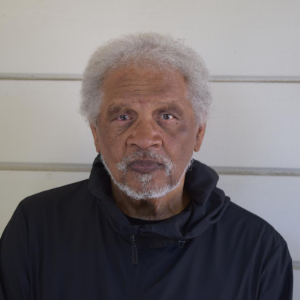
Jason Stanley
We will emerge and be less gullible.
Repeatedly, the wealthiest individuals and families misdirect anger—at racial, religious, and sexual minorities, at young people, at immigrants, at intellectuals, at liberals, at the press—so they can steal our money and enrich themselves.
What if we emerged as a nation unified across racial and religious lines, recognizing that we all want financial stability, a weekend at home with our families, an accessible healthcare system for each of us, free public education for our children, dependable and available jobs free from the threat of automation, and a climate that does not threaten future generations? What if we emerged with a unity forged by the realization that as long as the wealthiest among us can put the rest of us against each other, they will always emerge victorious?
We will emerge and find a better way.
Jason Stanley is the Jacob Urowsky Professor of Philosophy at Yale University, and the author, most recently, of How Fascism Works: The Politics of Us and Them.
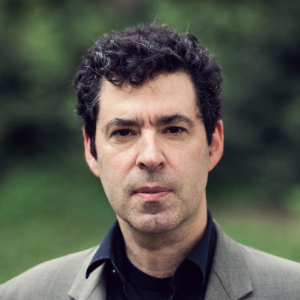
Julio Ricardo Varela
We will emerge and become more human.
Centuries of dehumanizing “the others” due to the illusion of gaining (or losing) power are coming to an end. The power structure is terrified, and as the real work to dismantle white supremacy continues with gradual yet incremental results that will soon lead to a truly equal society, the short-term future will seem uncertain, confusing, and unfocused. The purpose of changing will stay the course because in the end, this immoral sense of superiority was not only destroyed by a virus who knows no manufactured borders or fabricated constructs imposed on us by thousands of years of violence, but it will also be eradicated because of a deep desire to transform. That road will be an actual obstacle course, but our common belief that we can no longer dehumanize those we fear will triumph. There is only one path, and that is forward.
We will emerge and find a better way.
Julio Ricardo Varela is a journalist, writer, podcast voice, and founder of LatinoRebels.com. Twitter: @julito77
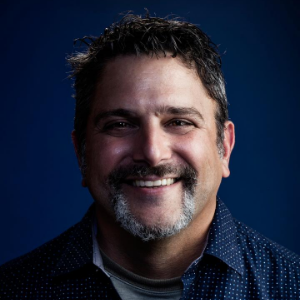

Ayelet Waldman
We will emerge and reckon with our history of racist violence.
Finally, for what feels like the first time, many of us who benefit from the privilege of our whiteness have been forced to bear witness to the murder of Black people by brutal, militarized police throughout the United States, in red states and blue. Though the threat of COVID-19 continues, and though many of the protestors are those most at risk from the complications of the disease, people have poured into the streets to demand an end to police violence. The courageous young Black leaders of this movement have, through diligence and sacrifice, forced a reckoning, and I hope that change might at last be within our grasp. Throughout this grim and tragic pandemic, we have seen members of our community step up with generosity and grace, even as the federal government has failed us. Whether it be people risking illness to protest racism and police violence, programs that nourish frontline medical staff and the hungry, 7pm applause campaigns to acknowledge the service and courage of those who can’t shelter in the safety of their homes, or individuals offering total strangers money to buy groceries or pay rent, we have seen so many be their best selves, even as Trump and his racist minions sink to their worst.
It is the protestors and the peacemakers who make me believe that we will emerge and find a better way.
Ayelet Waldman is a writer of novels, nonfiction, and television.
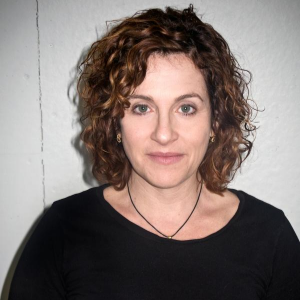
Gene Luen Yang
We will emerge and be determined to work toward justice.
If we don’t create a more equitable tomorrow, we won’t have a tomorrow at all.
We will emerge and find a better way.
Gene Luen Yang is the award-winning cartoonist who created the graphic novels American Born Chinese, Dragon Hoops, and Superman Smashes the Klan (with Gurihiru).
